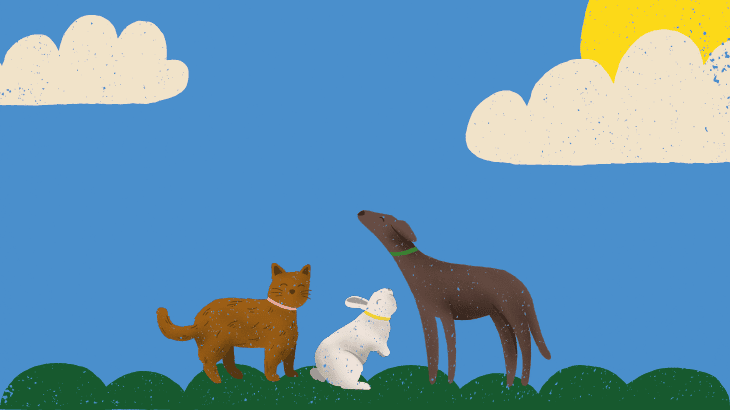
Pets can bring a special presence into your life. They provide a loving connection and a way to share our deepest emotions without the need for words.
They are a ‘welcome home’ at the end of a hard day, our link to other pet owners and a part of our daily routine. We go through so much with our pets that they become woven into the fabric of our lives. So, it’s only natural that when we lose such a valued friend, it causes us deep pain.
Grieving your loss
It’s normal to feel grief when you lose a pet but sometimes family and friends don’t fully understand and you may not be given the support people usually give when a person close to them dies.
You might even be seen as odd or crazy for expressing grief for an animal companion. This reaction can add to the pain. Trying to hide your emotions and get on with normal life may be difficult. If you’ve had to make the decision to put your pet ‘to sleep’, you might be feeling doubt and guilt especially if you didn’t have time and support prior to taking this decision.

Breaking the news to children
It can be difficult to break the news to children that a pet is very ill or has died. Although we may want to protect them, they have a right to know what is happening and they too need time to grieve.
This may be their first experience of death and if it’s handled well, it can provide valuable learning for coping with future loss. When breaking the news to children try to be as honest as possible and use words they will understand. Encourage them to remember the happy times you shared with your pet and to record memories through photos, drawings, poems, etc. Other pets in the family may show signs of upset and need extra attention as they adjust to the changes in the household.
How to cope with your loss
There are a number of things you can do to help you cope with the loss of your pet. You may find the following guidelines helpful, but remember, you’re the best person to decide what you need.
- Accept the pain of this grief is normal and allow yourself time to feel sadness, anger, guilt or whatever it is you need to feel.
- Try to share your emotions with someone who will understand – a friend, family member, other pet owners or veterinary staff.
- You may wish to bury your pet’s body or scatter their cremated remains in a special place. Having a ritual or ceremony at this time can be a helpful way to mark how much your pet has meant to you.
- Keep a memory box full of favourite toys and keepsakes. Record special memories; put photographs in a scrapbook, paint a picture, write a story or poem. You can also put a photo and story on a memorial website for animals.
- It’s important to look after yourself when you’re grieving. Try to take regular exercise and eat well-balanced meals. Rest is important and if your sleep is disturbed try winding down with a warm, milky drink or soothing music. Set up new routines to replace those you had with your pet, for example, change the time and location of walks. Avoid making any big decisions and seek the company of supportive family and friends.
- It’s up to each person or family to decide whether or not to get another pet. Some people choose to do this immediately, while others need time before they can make room in their hearts for a new relationship.
Sometimes grief can seriously affect your sleep, eating habits and ability to cope with life. If this is the case, you might benefit from professional counselling with someone who will understand and value the loving bond you had with your pet.
“It is a myth to think that dealing with the death of a pet is easier than dealing with the death of a human loved one. The loss of a beloved pet can call into play a person’s deepest spiritual beliefs and most profound emotions”
Tousley, Marty. (1996) Children and pet loss, a guide for healing
Further info
Further suggested reading is available from our Thérèse Brady Library, email [email protected]
Peata: www.peata.ie
DSPCA: www.dspca.ie
Dogs Trust: www.dogstrust.ie
Blue Cross: www.bluecross.org.uk


